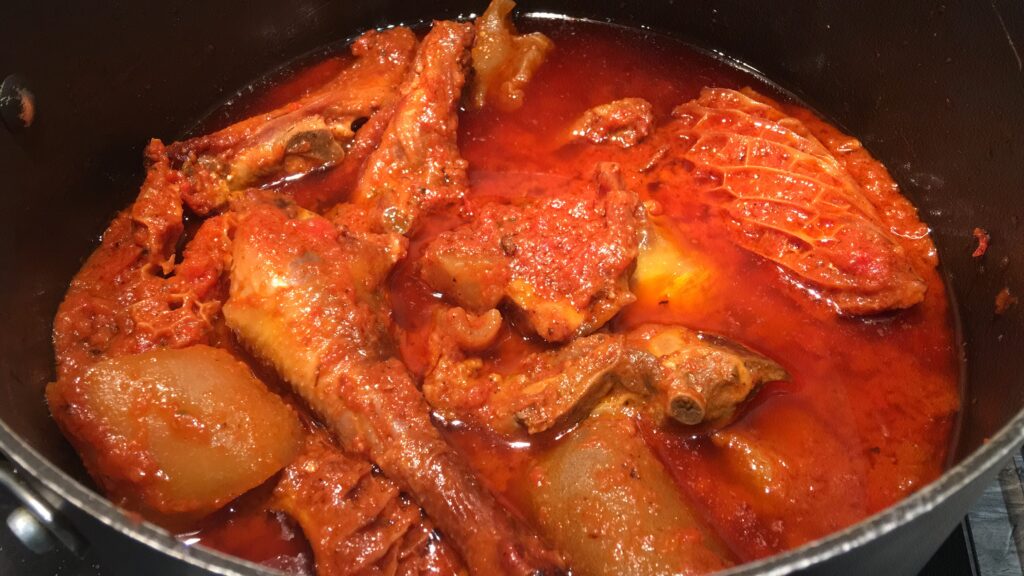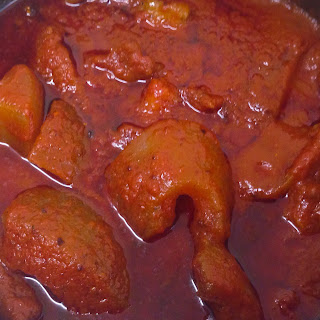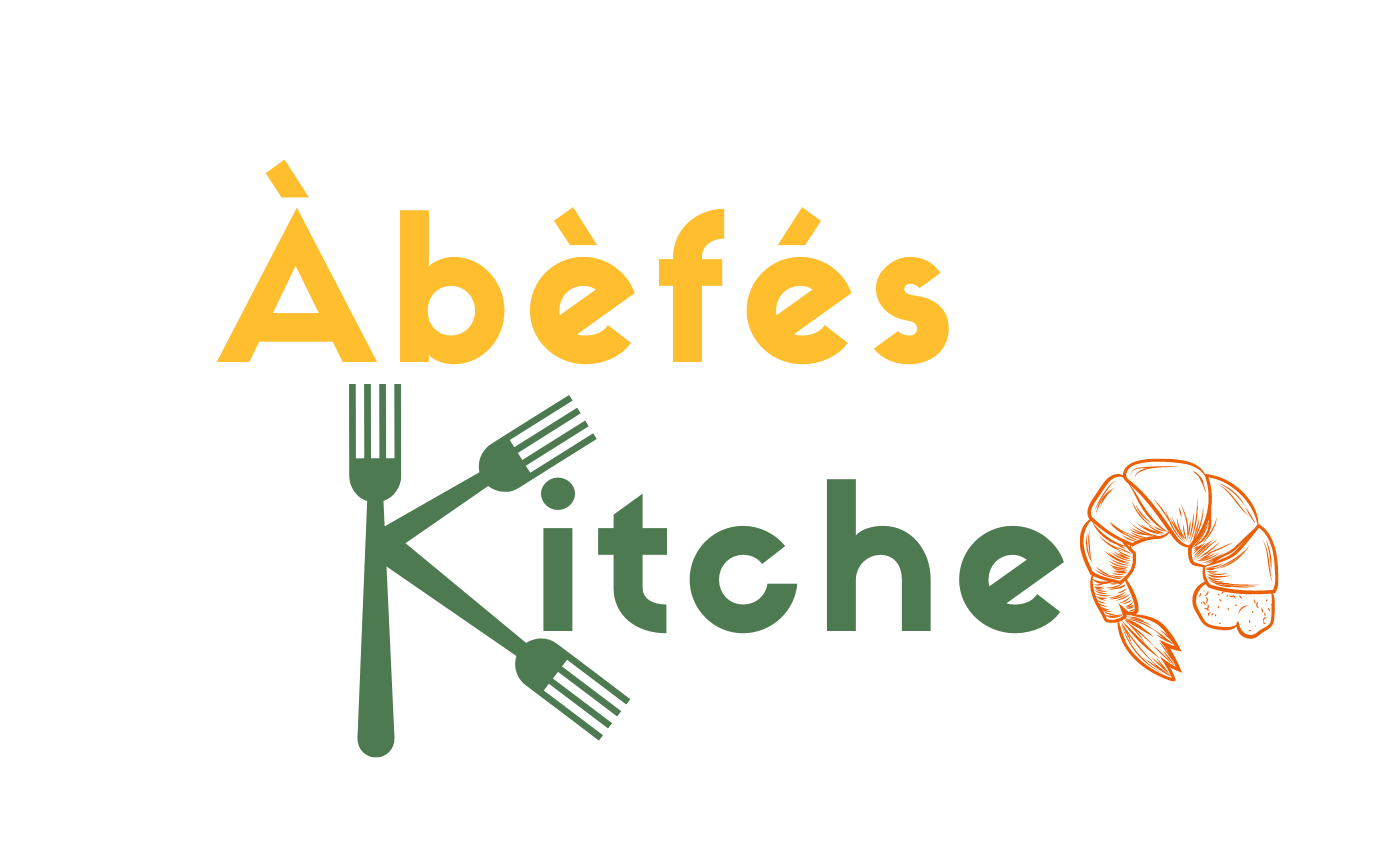Discover the rich, smoky flavours of authentic Obe Ata Dindin, Nigeria’s beloved fried stew! This traditional Yoruba dish combines tender shaki (tripe), ponmo (cow skin), and hard chicken in a deeply flavoured tomato-based sauce. Perfect for serving with rice, yam, or bread, this hearty stew represents the soul of Nigerian comfort food.
What is Obe Ata Dindin?
Obe Ata Dindin, literally meaning “fried pepper stew” in Yoruba, is a cornerstone of Nigerian cuisine. Unlike regular stews, this version is “fried” by cooking the tomato base until the oil separates, creating an intensely flavoured, reddish-brown sauce. The combination of traditional proteins like shaki and ponmo makes this dish authentically Nigerian.

Health Benefits of Traditional Proteins
- Shaki (tripe): High in protein, vitamin B12, and minerals
- Ponmo (cow skin): Rich in collagen and protein
- Hard chicken: Mature chicken with deeper flavour and firmer texture
Ingredients
For the Proteins:
- 500g shaki (beef tripe), cleaned and cut into pieces
- 300g ponmo (cow skin), cut into strips
- 1 whole hard chicken (old layer), cut into portions
- 2 bay leaves
- 1 large onion, quartered
- Salt to taste
For the Stew Base:
- 1.5kg fresh tomatoes (or 800g tinned plum tomatoes)
- 6-8 fresh red bell peppers
- 4-6 scotch bonnet peppers (adjust to taste)
- 2 large red onions, roughly chopped
- 6 cloves garlic
- 2-inch piece fresh ginger
For Cooking:
- 120ml vegetable oil (sunflower or olive oil)
- 3 tablespoons tomato purée
- 3-4 stock cubes (Knorr or Maggi)
- 2 teaspoons curry powder
- 1 teaspoon thyme
- 1 teaspoon paprika
- 2 bay leaves
- Salt and black pepper to taste
- 500ml stock (from cooking the proteins)
Optional Garnishes:
- Fresh basil or parsley
- Sliced ginger
- Hard-boiled eggs
Instructions
Step 1: Prepare and Cook the Proteins
For the Shaki (Tripe):
- Clean thoroughly: Wash shaki multiple times under cold running water, scrubbing to remove any residue.
- Pre-cook: Place in a pressure cooker with bay leaves, onion quarters, and salt. Cook for 45-60 minutes until tender.
- Alternative method: If no pressure cooker, boil for 2-3 hours until tender.
- Strain and reserve: Save the cooking liquid as stock and set shaki aside.
For the Ponmo:
- Clean and prepare: If dried, soak ponmo in warm water for 30 minutes. Clean thoroughly and cut into strips.
- Boil briefly: Add to boiling salted water for 10-15 minutes to soften. Drain and set aside.
For the Hard Chicken:
- Clean and season: Wash chicken pieces and season with salt, curry powder, and thyme.
- Boil: Place in a pot with bay leaves, onion, and enough water to cover. Cook for 45-60 minutes until tender.
- Reserve stock: Strain and keep the cooking liquid. Set chicken aside.

Step 2: Prepare the Pepper Mixture
- Roughly chop: Cut tomatoes, bell peppers, scotch bonnets, onions, garlic, and ginger into large pieces.
- Blend in batches: Using a food processor or blender, blend until smooth. Don’t add water – use the natural juices.
Step 3: Fry the Tomato Base
- Heat oil: In a large, heavy-bottomed pot, heat vegetable oil over medium heat.
- Add tomato purée: Fry for 2-3 minutes, stirring constantly until it darkens and becomes fragrant.
- Add pepper mixture: Carefully pour in the blended tomatoes and peppers (it will splatter).
- Cook thoroughly: Fry for 20-30 minutes, stirring regularly, until the mixture reduces by half and oil begins to separate on top.
- The secret: The stew should have a deep red colour and smell beautifully roasted.
Step 4: Build the Stew
- Add proteins: Add the cooked shaki, ponmo, and chicken to the fried tomato base.
- Season: Add stock cubes, remaining curry powder, thyme, paprika, and bay leaves.
- Add stock: Pour in enough reserved stock to achieve your desired consistency (usually 2-3 cups).
- Simmer: Bring to the boil, then reduce heat and simmer for 15-20 minutes.
Step 5: Final Seasoning and Serving
- Taste and adjust: Add salt, pepper, and more stock cubes if needed.
- Final simmer: Cook for another 5-10 minutes until flavours meld perfectly.
- Rest: Remove from heat and let stand for 5 minutes before serving.
- Garnish: Add fresh herbs if desired.
Pro Tips for Authentic Obe Ata Dindin
Achieving the Perfect “Fry”:
- Cook tomatoes thoroughly: The oil must separate for authentic flavour
- Don’t rush: Proper frying takes 20-30 minutes of patient stirring
- Use enough oil: This isn’t a low-fat dish – the oil creates the signature taste
- Medium heat: Prevents burning while achieving deep flavour
Protein Preparation:
- Pre-cook all proteins: Ensures tenderness and develops the stock
- Season early: Allow proteins to absorb flavours during cooking
- Save all cooking liquid: The stock adds incredible depth to the stew
Texture and Consistency:
- Blend peppers smooth: For traditional texture, avoid chunky pieces
- Control thickness: Add stock gradually to reach perfect consistency
- Rest before serving: Allows flavours to settle and develop
Traditional Serving Suggestions
Obe Ata Dindin is traditionally served with:
- White rice: The most popular combination
- Fried rice: For special occasions
- Boiled yam: A hearty, traditional pairing
- Bread: French bread or agege bread
- Plantain: Fried or boiled
- Eba or pounded yam: For a complete Nigerian meal
Regional Variations
Lagos Style:
- Add more scotch bonnet for extra heat
- Include dried fish for additional flavour
- Use palm oil instead of vegetable oil
Ibadan Style:
- Add locust beans (iru) for umami depth
- Include more onions for sweetness
- Longer frying time for darker colour
Storage and Reheating
Storage:
- Refrigerate: Keep covered for up to 4 days
- Freeze: Freeze in portions for up to 3 months
- Cool completely: Before storing to prevent spoilage
Reheating:
- Stovetop: Warm gently, adding stock if needed
- Microwave: Heat in intervals, stirring between
- Improve with time: Often tastes better the next day
Nutritional Benefits
This protein-rich stew provides:
- Complete proteins from multiple sources
- Collagen from ponmo and shaki for joint health
- Lycopene from tomatoes for antioxidant benefits
- Vitamin C from peppers for immune support
- Iron from organ meats for blood health
Shopping Tips in the UK
Where to Find Ingredients:
- African food shops: Best source for shaki, ponmo, and hard chicken
- Halal butchers: Often stock tripe and mature chicken
- Online retailers: Many UK-based African food suppliers deliver
- Large supermarkets: Some Tesco and ASDA stores carry African ingredients
Ingredient Substitutions:
- No hard chicken: Use chicken thighs or drumsticks, cook longer
- No ponmo: Use extra shaki or add cow foot
- No fresh scotch bonnet: Use habanero or dried chilli peppers
Cultural Significance
Obe Ata Dindin represents the heart of Yoruba cuisine, often prepared for Sunday family dinners, celebrations, and special occasions. The use of traditional proteins like shaki and ponmo connects modern Nigerian cooking to ancestral food traditions, making this dish a cultural bridge between past and present.
Prep Time: 30 minutes
Cook Time: 2.5-3 hours (including protein preparation)
Total Time: 3-3.5 hours
Serves: 6-8 people
Difficulty: Intermediate to Advanced

Leave a Reply